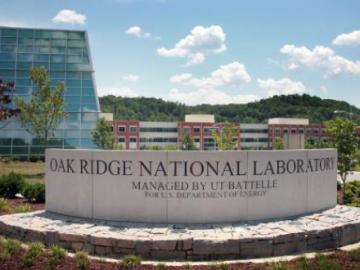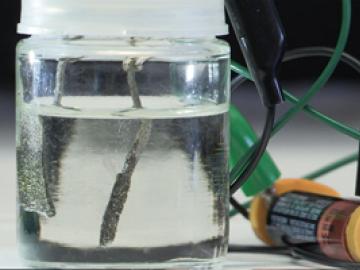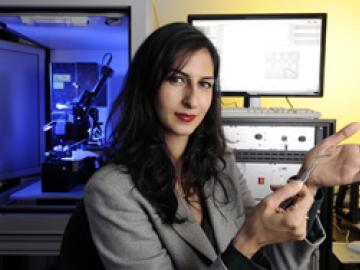Filter News
Area of Research
- (-) Energy Frontier Research Centers (6)
- (-) National Security (7)
- Advanced Manufacturing (10)
- Biological Systems (3)
- Biology and Environment (37)
- Biology and Soft Matter (3)
- Building Technologies (4)
- Chemical and Engineering Materials (2)
- Chemistry and Physics at Interfaces (5)
- Clean Energy (88)
- Climate and Environmental Systems (4)
- Computational Biology (2)
- Computational Chemistry (4)
- Computational Engineering (3)
- Computer Science (5)
- Earth Sciences (1)
- Electricity and Smart Grid (1)
- Fuel Cycle Science and Technology (1)
- Functional Materials for Energy (8)
- Fusion and Fission (14)
- Fusion Energy (1)
- Geographic Information Science and Technology (1)
- Isotopes (12)
- Materials (46)
- Materials for Computing (25)
- Materials Synthesis from Atoms to Systems (8)
- Materials Under Extremes (5)
- Mathematics (1)
- Neutron Data Analysis and Visualization (2)
- Neutron Science (22)
- Nuclear Science and Technology (6)
- Nuclear Systems Technology (1)
- Quantum Condensed Matter (2)
- Quantum information Science (3)
- Renewable Energy (1)
- Sensors and Controls (2)
- Supercomputing (36)
- Transportation Systems (4)
Media Contacts
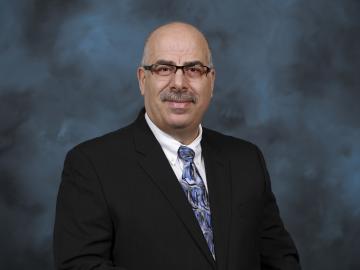
Moe Khaleel has been selected to lead the National Sciences Security Directorate, or NSSD, at the Department of Energy’s Oak Ridge National Laboratory.
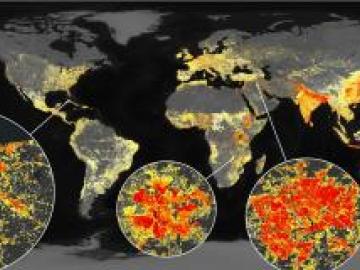
Using novel data sets and computing systems, researchers at ORNL are simulating how climate change affects the safety and security of the country.

A team of collaborators from ORNL, Google Inc., Snowflake Inc. and Ververica GmbH has tested a computing concept that could help speed up real-time processing of data that stream on mobile and other electronic devices.

Oak Ridge National Laboratory researchers have created a technology that more realistically emulates user activities to improve cyber testbeds and ultimately prevent cyberattacks.
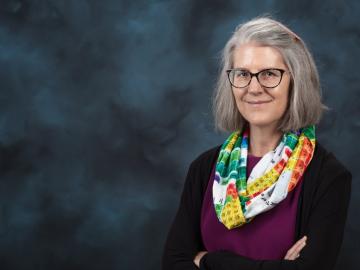
Deborah Frincke, one of the nation’s preeminent computer scientists and cybersecurity experts, serves as associate laboratory director of ORNL’s National Security Science Directorate. Credit: Carlos Jones/ORNL, U.S. Dept. of Energy
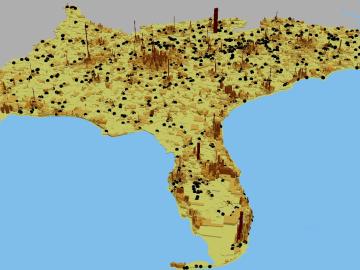
An analysis published in the Proceedings of the National Academy of Sciences and led by researchers from the U.S. Department of Energy’s Oak Ridge National Laboratory has received the 2021 Sustainability Science Award from the Ecological Society of America.
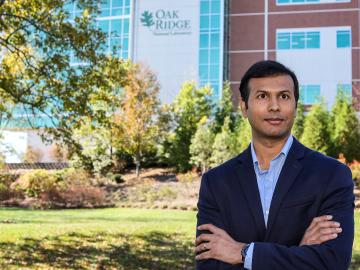
As Hurricane Dorian raged through the Bahamas, researchers at Oak Ridge National Laboratory worked around the clock to aid recovery efforts for one of the Caribbean’s worst storms ever.
